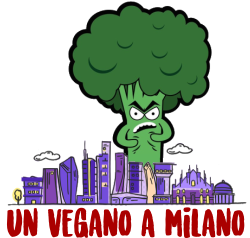Welcome to The Eye of Horus Institute, where we investigate and uncover the best evidence for health and wellness. Today, we’re tackling a topic that has become a staple in many fitness routines – protein powder supplements. The burning questions on everyone’s mind: Are they safe, and do we really need them every day? Let’s uncover the truth together.
The protein powder supplement industry is booming, with millions of dollars spent annually. But are these supplements a necessity or are we brain washed by Big Protein to feel we have to make them an addition to our diets? To help us unravel this mystery, we turn to reliable sources of evidence.
First up, we consult Dr. Michael Gregor, MD, from nutritionfacts.org. He highlights that there’s no real evidence of dietary protein deficiency. In fact, there was a significant shift in the understanding of protein requirements in the 1970s, debunking the theory of a “protein malnutrition” pandemic.<
So, the question arises – how much protein do we really need? According to the World Health , adults require no more than 0.8 to 0.9 grams of protein per healthy kilogram of body weight per day. That’s around 60 grams a day on average.
If we go back in time we can discover the perfect food for developing human beings. Yes, it’s human breast milk. So how much protein is in Human Breast Milk?
Human breast milk contains less than 1% protein by weight, is considered the ideal protein source for humans. It’s a fascinating revelation.
Can we get enough protein from regular food without resorting to supplements? Foods like eggs, milk, yoghurt, fish, lentils, meat, soya, nuts, and seeds are rich in protein. Most adults in high-income countries already exceed the daily protein recommendations just by consuming a regular diet. And it turns out that people eating a plant based diet with no meat and dairy also routinely exceed the daily protein recommendations just by eating pasta, rice and bread. Yes, Pasta provides 5.1g protein per 100g ,Rice provides 2.0g per 100g and Wholemeal Bread provides 13g Protein per 100g serve.
Surprisingly, people are more likely to suffer from protein excess than deficiency. Long-term high protein diets may lead to various health issues, such as bone and calcium disorders, kidney problems, increased cancer risk, liver disorders, and worsened coronary artery disease.
Many protein powders contain hidden dangers – heavy metals, bisphenol-A (BPA), pesticides, and other contaminants. Shockingly, these substances are linked to serious health conditions, including liver and kidney damage and cancer.
Now, here’s a startling fact – protein powders, along with other dietary supplements, are not regulated by the FDA in the US or the TGA in Australia for safety or effectiveness. No requirement ensures that these products contain what their labels claim. It’s a potential risk that consumers need to be aware of.
So, what’s the consensus? A review of existing studies suggests that protein supplementation is often overused, with insufficient evidence supporting its benefits.
Protein powders often contain hidden ingredients and dangerous contaminants. If you choose to use them, remember, these products are largely unregulated. Keep a close eye on any side effects and if you experience any then immediately stop taking the powders and consult with your medical doctor.
In the pursuit of Health and Wellbeing, Knowledge is power. Stay informed, stay healthy. This is The Eye of Horus.
Visit our YouTube channel for more videos at www.youtube.com/@TheEyeofHorusInstitute-nu6kh.

Scary stuff.